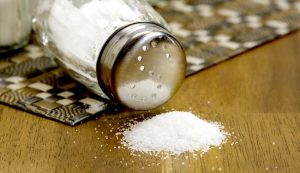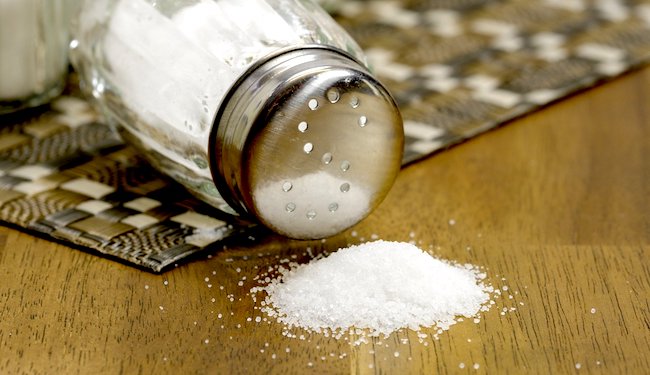
The Story
“Elie, I saved you a seat!” called Avishai. “The lunch room is really busy today.”
The two boys put their lunches on the table, and walked together to the washing station. After netilas yadayim, they sat back down at their table. Elie made the bracha of hamotzi and then took a big bite of his sandwich. Avishai was still unwrapping his sandwich while Elie was on his next few bites. Avishai hesitated before his first bite, looking around the table. He went off, and eventually returned with a salt shaker. He made hamotzi, dipping a corner of his sandwich into the sprinkling of salt on his plate three times, and then ate.
“Wow, Avishai, I’m already finished my sandwich! What took you so long?”
“I wanted to find the salt! Our table didn’t have any, so I had to go looking“ answered Avishai.
“We put on salt when we eat our bread on Shabbos, but do you really have to use it during the week too?”
“I think it’s important,” nodded Avishai.
Elie thought for a moment, “But it took you two extra minutes to find the salt and come back to the table….isn’t that a hefsek between netilas yadayim and hamotzi?”
Discussion
Q: What is the connection between our story and the parsha?
A: Parshas Vayikra discusses the laws for the various korbanos. One very important rule was that every korban needed to be brought with salt (Vayikra 2:13).
Q: Why is salt important for our meals?
A: The Rema teaches that the tables we eat on today are like the mizbeach of the temple . Just as the mizbeach was used to bring forgiveness to the Jewish people, so too the tables that we eat on can bring forgiveness to us (167:5). In order for this to happen, however, we have to have kavana that the reason that we are eating food is to serve Hashem and not for our selfish enjoyment. For example, we should make sure that divrei torah are spoken (Shaar Tzion 167:25). Just as it was important to have salt present in the korbanos, it is important to have salt present for the avoda that we hope to perform for Hashem during the time of our meals.
Q: Did Elie choose randomly to dip his bread in the salt three times?
A: No. This is a teaching from the Kabalah (Mishna Berura 167:33). However, this is not an obligation, and only some have the custom of doing so.
Q: After Avishai washed for netilas yadayim he discovered that their was no salt at the table. Was it alright to delay making the beracha of Hamotzei in order to find salt?
A: Yes. There is no concern in this case for a hefsek, because the salt is needed in order to ideally perform the mitzvah (Mishna Berura 167:29).
Back to Our Story
The boys’ rabbi was patrolling the lunch room that afternoon, and overheard the boys’ discussion. He happily paused at their table to explain to them the importance of having salt at their table. He added that it is not considered a hefsek if one needs extra time to fetch the salt between netilas yadayim and hamotzi.
The next day, the boys sat at their usual seats at lunch time. Avishai noticed that Elie exhibited an extra fancy flourish as he unpacked his lunch. He pulled out a napkin and placed on the table. On top he lay his drink, a cream cheese sandwich, muffin, green apple, and – right at the edge of the napkin, so that Avishai could easily reach it as well- a little plastic portable salt shaker.
(Written by Josh and Tammy Kruger, in collaboration with Rabbi Yehoshua Pfeffer of the Institute for Dayanim, and based in part on the following lecture by Rabbi Mendel Kaplan: http://www.chabad.org/multimedia/media_cdo/aid/1451587/jewish/Salt-in-Jewish-Law-and-Custom.htm)


